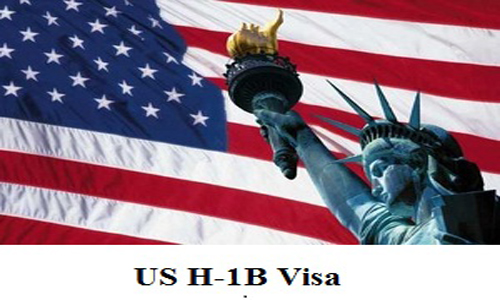The share of Indians getting H-1B visa went up to 64 per cent in 2012 from 58 per cent in 2011. This was revealed in data released recently by the US Department of Homeland Security. It means stakes for a H-1B visa continue to grow, even as concerns are being raised about the comprehensive immigration bill passed by the U.S. Senate in June. It may be noted that although the new immigration law increases the annual H-1B cap, Indian technology firms feel its provisions will hurt them hard.
Although, CEOs of top U.S. technology companies have all along been pushing for the passage of the comprehensive immigration bill, Indian IT CEOs do not share their enthusiasm.
Landmark US Immigration billThe landmark immigration reform bill passed in June by the US Senate is expected to provide citizenship to some 11 million illegal immigrants. Though the bill also increases the H-1B visa cap, Indian IT companies, feel its provisions provide for a further stringent and restrictive visa regime.
Will hurt competitiveness, say Indian IT firms
Experts in India say the bill contains many provisions that are discriminatory towards Indian IT companies and believe that it will hurt their global competitiveness.
The new Immigration bill says that not more than 75 per cent of workforce of any organisation can be on H-1B visas, effective 2014. In 2015, this cap will reduce to 65 per cent; and further go down to 50 per cent beginning 2016. Indian IT companies in the U.S. which typically have 60-80 per cent of its workforce on visas, find this provision restrictive.
Under the provision, Indian IT firms will be forced to hire more workers locally, and at higher wages. Their recruitment from India will only happen after they prove that workers with the required skills are not available locally in the U.S. This is bound to severely hurt their cost advantage.
The bill requires every job opening to be posted on the U.S. Department of Labour website for 30 days before hiring H-1B visa holders to the post. India firms argue that this will be time consuming and delay project ramp-ups and volumes.
The bill provides for higher wages for H-1B visa holders, which firms in India say will mean higher costs which in turn will hurt their profit margins.
Another point of concern for Indian IT firms is the provision that any company which has more than 15 per cent of its workforce on H-1B visas will be barred from placing those workers at client sites. Indian firms see this restriction as a big blow as onsite work accounts for almost half of their total revenues. Experts say this provision will not only increase the cost for Indian IT companies, but may also make the current onsite model unviable for them.
Further, the bill proposes higher fees for H-1B and L-1 visas. Adopting a gradation process, the bill says if more than 30 per cent of an organisation's workforce is on visa, then the applicable fees will be US$ 5000 for every new visa application; and if more than 50 per cent workforce is on visa, then the charges will be US$ 10000 per new visa application. Compared to the current fees of roughly US$ 2000 per application, India companies see this sharp rise as a major cost burden.
Address nation's talent shortageU.S. technology companies, on the other hand, feel the bill will help address the nation's talent shortage in the near-term.
Earlier in June, prior to its passage in the Senate, more than 100 top American CEOs from technology sector, including from companies such as Facebook, Google and Microsoft, had appealed for its approval saying it would open a new path to the country's innovation and economic strength.
In their letter, the CEOs expressed confidence that the immigration reforms, expected to impact high skilled immigration, would lead to improvement in the availability of both green cards and H-1B visas, which will help address the nation's talent shortage.
Waiting to see its final form
Meanwhile, Indian IT firms are carefully observing the development to see what final form the bill takes. However, the final form of the immigration law remains unclear as the U.S. House of Representatives have delayed its consideration, with a media report even suggesting that "it remains unlikely that a comprehensive immigration reform bill will work its way through the House this term."

